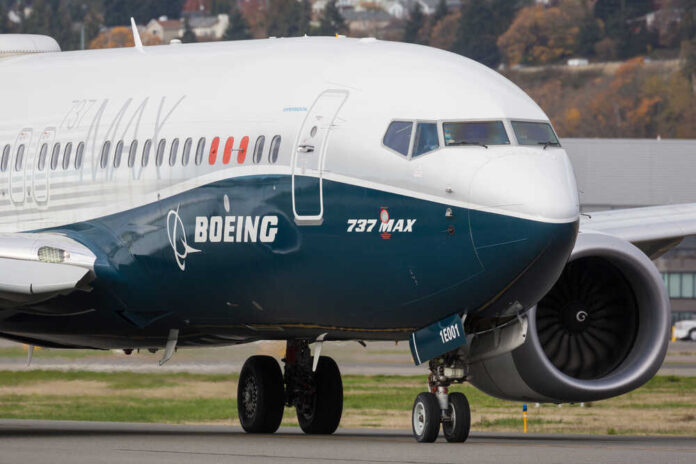
Earlier this year, an Alaska Airlines jet had a rupture in the middle of a flight, and Boeing is now facing accusations of not providing paperwork showing the repairs.
The National Transportation Safety Board (NTSB) found Boeing to have neglected to produce paperwork for the aircraft work done in September, which included repairing rivets and removing and replacing the door stopper. The riveting occurred at Boeing’s Renton, Washington site, and the company asserted that the security camera footage from that location had been deleted.
A preliminary investigation by the National Transportation Safety Board found that the aircraft’s escape door stopper could have been missing one of its four bolts before delivery to Alaska Airlines. Boeing stated that the repair work was overwritten in the surveillance film because the facility’s camera systems save the footage for a rolling 30-day period. The panel rupture that necessitated an emergency landing on the Alaska Airlines jet was supposed to be serviced later that evening.
The National Transportation Safety Board has been requesting these crucial data since January 9, which is only four days after the door came loose on the 177-passenger airliner and crashed in a yard in Oregon. During the September repair, which involved opening, removing, and reattaching the door plug, it is possible that the four bolts were not reinstalled on the plane.
Although Boeing provided the names of potential witnesses to the NTSB investigation, the company did not identify which personnel performed the door plug work.
The door staff manager’s lawyers also declined to speak with investigators, citing the manager’s medical absence from Boeing as the reason he could not participate in questioning. Boeing denied Homendy’s allegations and said it had been helping authorities all along. They maintain there was no wrongdoing on the part of the corporation in erasing the surveillance footage; instead, it is policy only to keep video records for a rolling 30 days.
In 2021, after a federal probe into deadly crashes involving Boeing Max 737 planes in 2018 and 2019, the Justice Department began a criminal inquiry to determine whether Boeing complied with a $2.5 billion settlement. If the Department of Justice determines that Boeing exceeded the parameters of its 2021 settlement, prosecutors may decide to press fraud charges against the airplane manufacturing behemoth.













